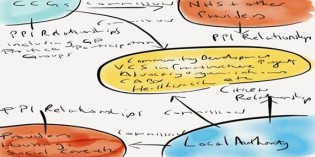Building sub-national government

Yes or no, 2014’s Scotland referendum carries significant constitutional implications
On 18 September 2014 the Scottish electorate will be asked to vote in a referendum on whether Scotland should be an independent country, with the result still in the balance. Stephen Tierney and Katie Boyle argue that there are meaningful constitutional implications for Scotland and the UK, whatever the result in 2014. Following the Edinburgh […]

NHS bodies commissioning care need to show leadership and passion for involving patients and the public
In the reformed NHS, new mechanisms for involving patients and the public are being developed. In this post Mark Gamsu sets out how Clinicial Commissioning Groups – the GP-led bodies that now commission most local health services – need to show stronger leadership in this area, working in partnership with local authorities and others. Similar […]

The Scottish Question: The notion that constitutional politics can be separated from ‘ordinary’ politics is unconvincing
With the Scottish referendum less than one year away, James Mitchell discusses three broad types of issues in the debate: those that are core, such as the economy, defence and welfare; those that are insulated, for example the lively debate on public service reform that continues outside of the Scottish referendum context; and issues that are being […]

Interview: Historian Linda Colley on Englishness
In an interview with IPPR’s Guy Lodge, historian Linda Colley rejects the idea that British disintegration is inevitable but says a new constitutional settlement is needed to bind the nations and people of the United Kingdom together, and to help clarify its relationship with Europe. The English, she argues, would benefit from having a parliament […]

Scotland’s immigration debate must go beyond a focus on Scotland’s economic needs and fear of the ‘other’
The depiction of Scotland as being welcoming to newcomers is an important aspect of Scottish national identity, but what are the prospects for immigration reform in the case of Scottish independence? Joanna Wiseman argues that the debate on immigration in Scotland must go beyond a simple focus on Scotland’s economic needs and a suspicion and fear of ‘the […]

The ‘English Question’, what we can learn from the Cornish Assembly Campaign, and why an English tier is not enough
Cornish calls for devolved Government have been heard consistently since the 1960, with campaigners even managing to amass the signatures of 10% of the county’s population just over a decade ago. Dr Joanie Willett argues that the debate around the future of England as a political entity must consider the creation of regional governance structures which […]

The Scottish Parliament’s record on women’s representation is in the balance
Since its establishment, the Scottish Parliament has set the standard in the UK for gender representation, with elections in 1999 and 2003 bringing record numbers of women into the legislature. Since then, however, progress towards a consistent equality has stalled. In the latest post in our Gender and Democracy series, Meryl Kenny of the University […]

Yes or no, the Scottish independence referendum will have a lasting impact on the coherence of the multi-national state
The future of the Union is in doubt, with a ‘yes’ vote in the Scottish referendum on independence still a possibility. The ramifications for the residual union of England, Wales, and Northern Ireland are under-explored, with attention focussing mainly on the implications for Scotland. Here, David Melding, the Conservative Welsh Assembly Member for South Wales […]




 Democratic Audit's core funding is provided by the Joseph Rowntree Charitable Trust. Additional funding is provided by the London School of Economics.
Democratic Audit's core funding is provided by the Joseph Rowntree Charitable Trust. Additional funding is provided by the London School of Economics.